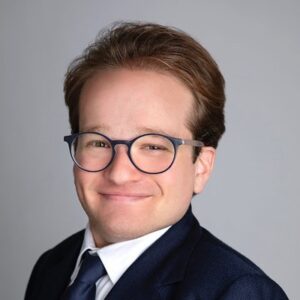Takeaway
The first step to being an ally for the disabled community is to educate yourself about the meaning of your word choice.

Lifelong learning in clinical excellence | October 14, 2020 | 2 min read
By Harry Paul (he/him), MD/PhD student, Johns Hopkins Medicine
I’m a disabled MD-PhD student, passionate about researching, writing, and speaking about disabilities in medicine. There are many barriers for us to work on together, and that means we need to be able to talk about them. Everyone in medicine should be fighting for captioned lectures, making sure transcripts are readily-available for workshops, ensuring conferences are wheelchair accessible, having allergy-friendly food at events, and addressing any other gaps in accessibility.
However, as I’ve gained a platform on Twitter over the last year, I’ve noticed that a lack of knowledge around how to talk about disabilities is preventing many healthcare professionals from joining this movement.
There are many well-meaning people who mistakenly alienate the disabled community because they were taught to say “differently-abled,” a phrase many consider a slur. To truly reform the way we think about disabilities and make our culture a safe and welcoming place for everyone, we must think about language.
Here are three things all healthcare professionals should know about language so that we can move on to critical anti-ableist work:
1. Disability isn’t a bad thing.
Many euphemisms exist for disability. “Differently-abled” is one of the most common ones, and it continues to damage our community by implying that disability is a bad thing. Disability is simply a part of life for many people that needs to be accommodated and supported. As the old saying goes, fear of the name increases fear of the thing itself.
2. The difference between person-first versus identity-first language.
Person-first language is phrasing that puts the person before their identity. A medical student with cancer. A person who uses drugs. A patient who has diabetes.
Identity-first language is the reverse. A disabled medical student. A Deaf person. My autistic friend.
Not everyone with the same condition refers to themselves the same way, so the best thing to do is ask. When speaking with individual people, ask them how they’d like to be referred to. If you’re writing or speaking generally, look up what people in the community use to describe themselves and follow their lead.
In general, identity-first language is preferred when speaking of the disabled community as a whole, as well as for many sub-groups (especially the Autistic community). However, it’s important to note that people who use drugs usually don’t want to be referred to as addicts.
3. Language is empowering.
As described in Simi Linton’s book “Claiming Disability,” word choice can empower people. Language can be a gateway to start understanding the disabled experience. The more we’re comfortable talking about disability, the more we can learn about different life experiences and advocate for inclusion.
The first step to being an ally for the disabled community is to educate yourself.

